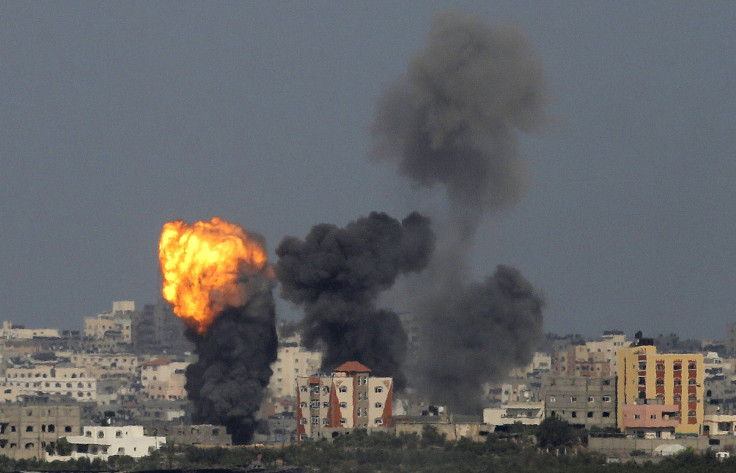The Israeli Defense Force (IDF) announced that it launched a ground operation in the Gaza Strip and had called up an additional 18,000 reservists. Resistance forces in Gaza reportedly started to fight back against the Israeli invasion in Khan Younis and other eastern neighborhoods Thursday night.
According to the IDF, its forces began attacking late Thursday night in the north, center and south of the Gaza Strip and that its infantry, tanks, artillery, engineers and field intelligence entered Gaza. The Air Force and Navy also moved toward the strip to attack Hamas. The operation is being led by the IDF's Southern Command. Reports surfaced late Thursday night that the IDF had boots on the ground in three parts of the strip.
The group said via social media that its goal was to target Hamas tunnels that "enable terrorists to infiltrate Israel and carry out attacks."
A press release issued by the Israeli military said: "The IDF's objective as defined by the Israeli government is to establish a reality in which Israeli residents can live in safety and security without continues (sic) indiscriminate error, while striking a significant blow to Hamas' terror infrastructure."
"They won't stop resisting just because their weapons are taken away. This notion that Israel will deal a military blow once and for all to Hamas and hamas will surrender ... I think is a really dangerous hallucination," Khaled Elgindy, a senior fellow at Brookings Institution, said.
The main concern for Palestinians living in Gaza will be avoiding the Israeli offensive and finding safety. So far, 240 people have been killed in Gaza, including at least seven children who died Thursday, and about 1,800 injured, according to the Palestinian Ministry of Health. One Israeli citizen has died.
It is unclear how the humanitarian situation will unfold in the coming hours.
The International Business Times reached out to humanitarian organizations and international NGOs in Gaza, but calls went unanswered. The United Nations, the International Committee of the Red Cross and the World Health Organization are the three main groups operating in the Gaza Strip.
The border to Gaza has been closed and communication cut. Journalists in Gaza said cell phone service had been turned off, but satellite phones were still working. Journalists tweeted out coordinates to the IDF for evacuation.
Some Palestinians living in Gaza seemed to have access to the Internet. Twitter users reported Israeli bombardment in Khan Younis and the death of one person.
Mahmoud Daher, head of the World Health Organization Gaza Office, said Thursday that 10 people had been killed since 3 p.m. and seven of them were children. He said the children were playing on the roof of their house when the bombs fell.
Daher said there is heavy bombardment in the western part of the strip from the naval ships and also in the eastern part of Gaza city near the Al-Shifaa hospital. Hospital staff had to evacuate 15 patients from the hospital because of the heavy bombardment. Daher said the borders to Israel were closed but they could open in the morning for evacuation.
Elgindy said he did not think Israel's invasion would not last long because Israel is "casualty averse."
"The death toll on the other side tends to be even more disproportionate. This means we will see very high casualty rates on the Palestinian side," he said.






















